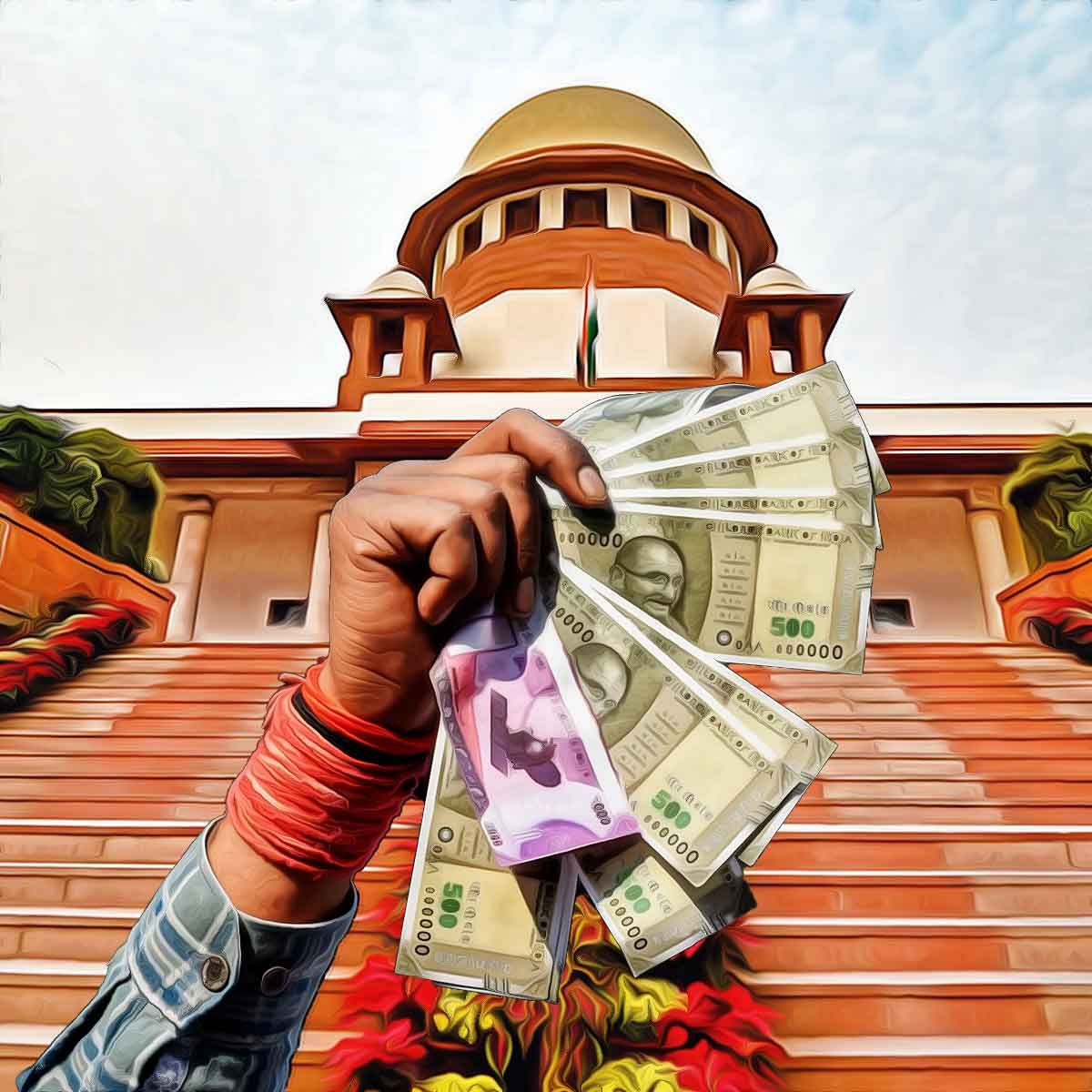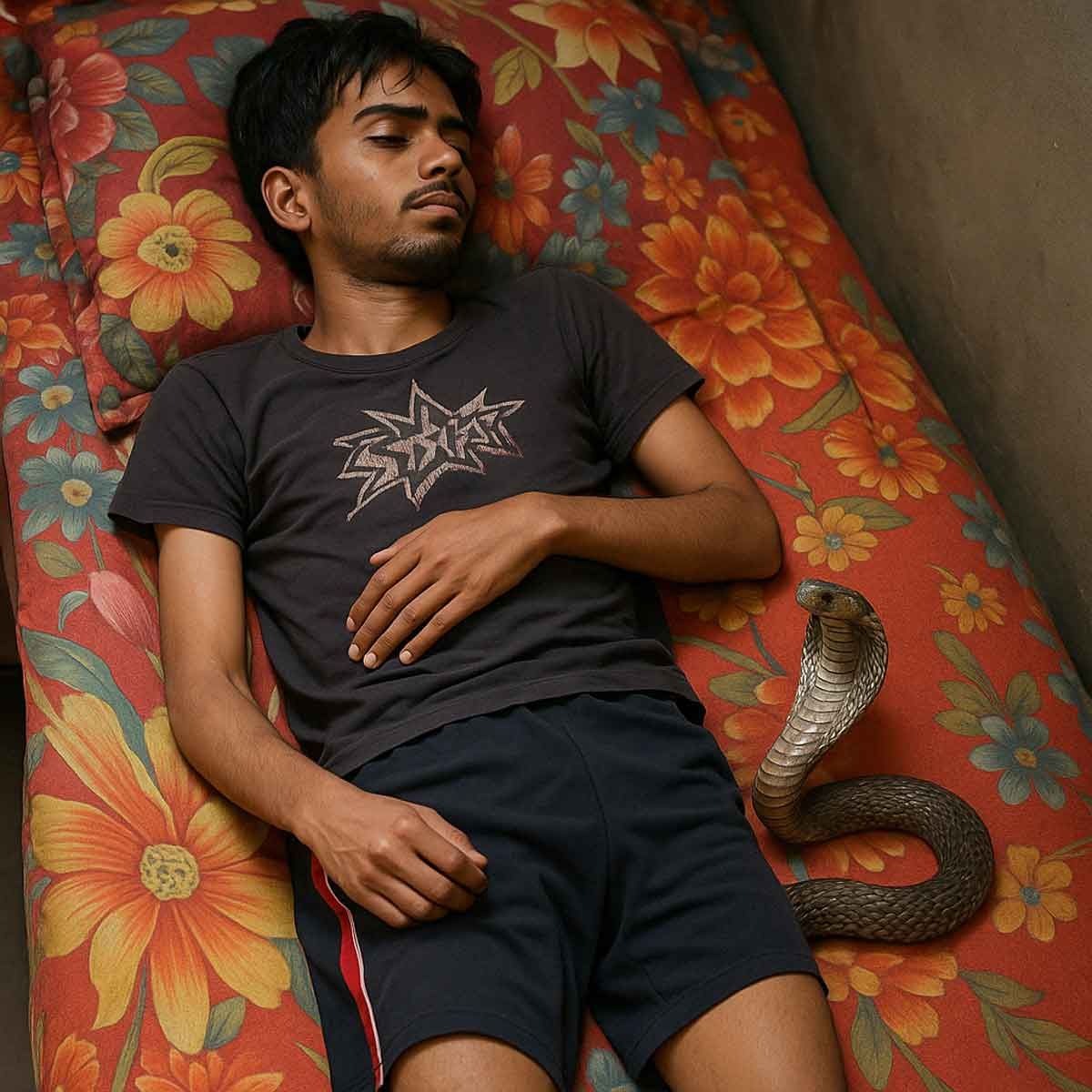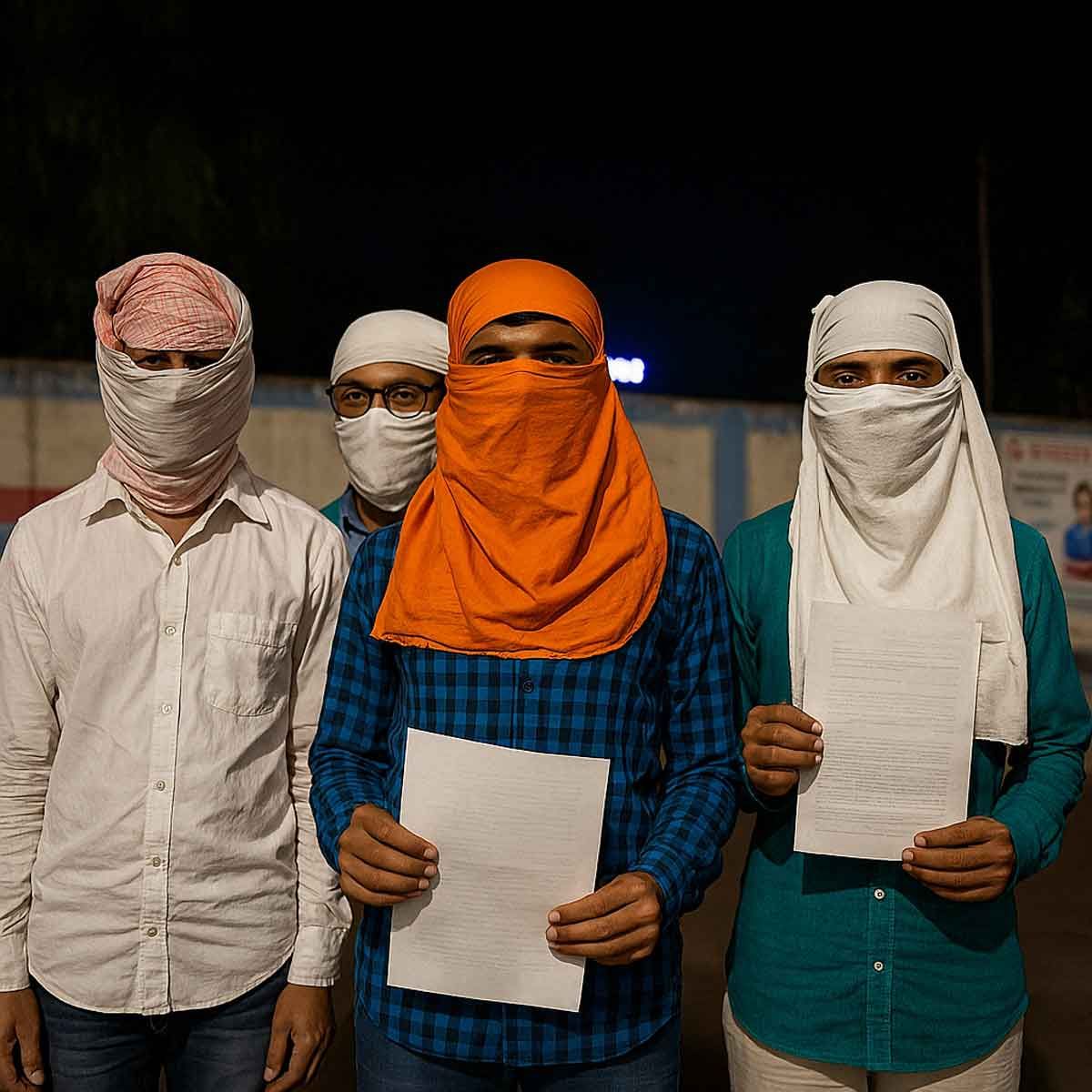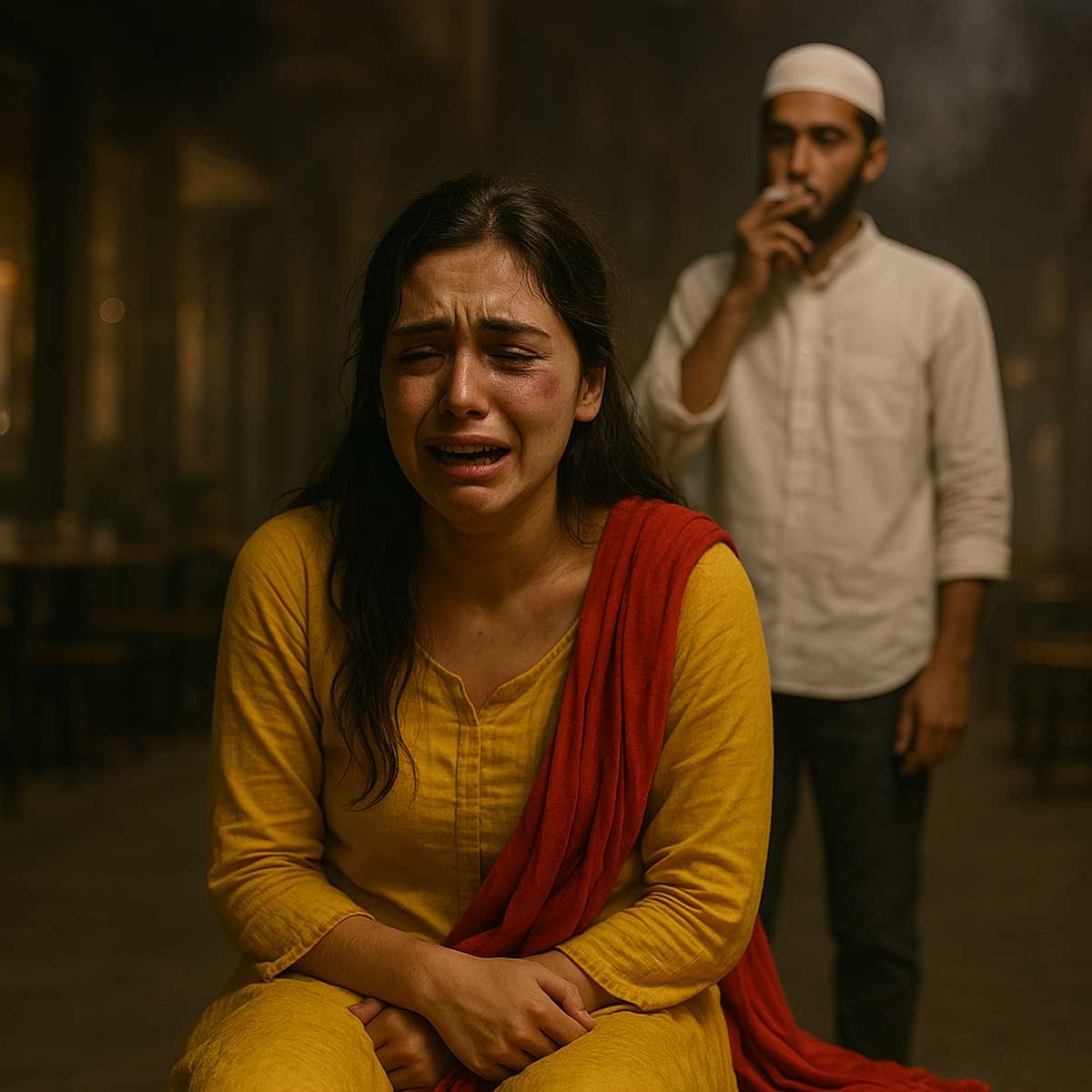More Coverage
Twitter Coverage
Satyaagrah
Written on
Satyaagrah
Written on
Satyaagrah
Written on
Satyaagrah
Written on
Satyaagrah
Written on
JOIN SATYAAGRAH SOCIAL MEDIA
"It is only the cynicism that is born of success that is penetrating and valid": A five-judge bench of the Supreme Court on Monday dismissed a petitions challenging the Central government's 2016 decision to demonetise currency notes of ₹1,000 and ₹500

A five-judge bench of the Supreme Court on Monday dismissed a petitions challenging the Central government's 2016 decision to demonetise currency notes of ₹1,000 and ₹500. [Vivek Narayan Sharma v. Union of India and ors]
|
A Constitution Bench of Justices S Abdul Nazeer, BR Gavai, AS Bopanna, V Ramasubramanian and BV Nagarathna delivered the verdict on a batch of pleas challenging the Central government's 2016 demonetisation exercise.
Delivering the majority opinion, Justice Gavai stated,
"It has been held that there has to be great deal of restraint before interfering in matters of economic significance...we cannot supplant such views with the judicial one."
He went on to hold,
"There was consultation between the Centre and the RBI for a period of 6 months. We hold that there was a reasonable nexus to bring such a measure, and we hold that demonetisation was not hit by doctrine of proportionality."
Finally, Justice Gavai concluded that the RBI has no independent power to bring in demonetisation.
"Thus, power available to the Centre cannot be mean that it is in relation to only specific series of bank notes. It is for all series of bank notes...There is no excessive delegation as under Section 26(2) of RBI Act and thus cannot be struck down. Notification is valid and satisfies the test of proportionality. period for exchange of notes cannot be said to be unreasonable."
In a nutshell
- Central government in consultation with RBI can bring in demonetisation under Section 26(2) of RBI Act;
- Demonetisation notification is valid and satisfies the test of proportionality. Period for exchange of old notes not unreasonable;
- There was consultation between the Central government and the RBI for a period of 6 months. There was a reasonable nexus to bring such a measure;
- Power available to Centre cannot be mean that it is in relation to only specific series of bank notes. It is for all series of bank notes;
- RBI does not have any independent power to bring in demonetization
|
Justice BV Nagarathna dissents
Justice Nagarathna, however, differed on the answers of each of the questions, and delivered a dissenting judgment.
"I have noted that RBI is the bulwark of Indian economy. I have cited history of such demonetisation exercise world over. Court is not to sit over merit of economic or financial decision...examining Section 26(2) would not mean to sit over the merits of demonetisation and thus it is well within the lakshman rekha as drawn by this Court."
She went on to hold,
"Demonetisation at the behest of the Central government is a far more serious issue affecting citizens than the one done by the banks. Therefore, in my view, powers of Centre being vast, the same has to be done by plenary legislation."
"Without Parliament, a democracy cannot thrive...Parliament cannot be left aloof on such important decisions," she went on to state.
Significantly, she held,
"There is an inherent contradiction in the provision of Section 26(2) [of the RBI Act] itself. Looking at the records submitted by RBI, it is noted that demonetisation was recommended by the Central government. This shows there was no independent application of mind by the RBI."
|
There was no independent application of mind by the RBI. Justice BV Nagarathna
The batch of pleas challenging the move had prompted the Court to frame eleven questions of law.
Over six years after the move, the petitioners raised the following broad grounds:
Section 26(2) of the Reserve Bank of India (RBI) Act that allows the government to declare all series of a particular denomination as being no longer legal tender is too wide;
The decision-making process was deeply flawed;
The recommendation did not consider relevant factors;
The stated objectives of demonetisation were not achieved;
The move fails the test of proportionality;
The Court has powers to mould and grant declaratory relief.
If Anyone asked u , what's the benefit of #Demonetisation , Slap the fact that pre #Demonetisation india was nowhere in Digital transaction, today it's the leading country in Digital transaction, 2nd position hold less than half of India in volume. #SupremeCourtOfIndia pic.twitter.com/NUQJe2OTXi
— Satyaagrah (@satyaagrahindia) January 3, 2023
Senior Advocate Shyam Divan for the petitioners had submitted that a recommendation of Central Board of the RBI was a necessary requirement before the Central government could have taken the decision for demonetisation.
He added that the Centre was duty-bound to honour the promise written in bank notes of paying bearers a sum, in writ and civil courts.
Senior Advocate Jaideep Gupta, appearing for the RBI, had argued that if every individual were to make specific demands and seek a writ of mandamus, the deadlines would have been meaningless.
"The Prime Minster said 50 days, if he had even stated that more time would be granted later, no case is made out that promissory estoppel operates. Beyond that period we did not give any guarantee."
Attorney General (AG) for India R Venkataramani, representing the Central government, had stressed that the distinctions made for grace periods for different categories were not arbitrary.
On the contention by one of the petitioners that their right to dignity was affected, the AG had said,
"The dignity aspect should be preserved for more precious cases. An NRI goes abroad for financial benefit, no question of dignity there. Dignity involves privacy etc."
Senior Advocate P Chidambaram had told the Supreme Court that the Central government should disclose documents revealing how the 2016 demonetisation exercise was approved, so that the top court can decide the legal validity of the move.
The Court had, on the final day of the hearing, asked the Central government to hand over some undisclosed documents relating to the decision, in a sealed cover.
References:
 Support Us
Support Us
Satyagraha was born from the heart of our land, with an undying aim to unveil the true essence of Bharat. It seeks to illuminate the hidden tales of our valiant freedom fighters and the rich chronicles that haven't yet sung their complete melody in the mainstream.
While platforms like NDTV and 'The Wire' effortlessly garner funds under the banner of safeguarding democracy, we at Satyagraha walk a different path. Our strength and resonance come from you. In this journey to weave a stronger Bharat, every little contribution amplifies our voice. Let's come together, contribute as you can, and champion the true spirit of our nation.
 |  |  |
| ICICI Bank of Satyaagrah | Razorpay Bank of Satyaagrah | PayPal Bank of Satyaagrah - For International Payments |
If all above doesn't work, then try the LINK below:
Please share the article on other platforms
DISCLAIMER: The author is solely responsible for the views expressed in this article. The author carries the responsibility for citing and/or licensing of images utilized within the text. The website also frequently uses non-commercial images for representational purposes only in line with the article. We are not responsible for the authenticity of such images. If some images have a copyright issue, we request the person/entity to contact us at This email address is being protected from spambots. You need JavaScript enabled to view it. and we will take the necessary actions to resolve the issue.
Related Articles
- Uphaar Cinema fire was one of the worst fire tragedies in recent Indian history: Association of Victims of Uphaar Fire Tragedy (AVUT) filed a landmark case considered a breakthrough in civil compensation law in India
- Why Hindus not claiming their temples back from the Government control: Is pro-Hindu govt will always be in power
- "Best advice I ever received was to give advice only when asked for it": State does not owe loyalty to any one religion and the Constitution requires that religious majority in the country shouldn’t enjoy any preferential treatment, Justice BV Nagarathna
- "Action speaks louder than words": Amidst rising tension in Manipur, the Supreme Court steps in, forming an all-women judicial committee to ensure justice. While incidents in other states might be overlooked, Manipur won't be left in the shadows
- Notice issued to Central govt on plea challenging the constitutional validity of Waqf Act 1995 by Delhi High Court: Ashwini Upadhyay filed the plea that Waqf Act is antithetical to Secularism in India
- Plea of MP Navneet Rana and husband MLA Ravi Rana to quash FIR for the gruesome and heinous crime of reciting Hanuman Chalisa outside Matoshree dismissed by Bombay HC: Justices stated that it was devoid of merit
- SC bench of Justices Chandrachud and AS Bopanna rules in favor of Muslim petitioner: “Don’t exclude non-Hindus from auction process for shop leases in temple”
- "It is not wisdom but Authority that makes a law": SC orders new rules for appointment of Chief Election Commissioner and Election Commissioners similar to appointment of CBI Director by a committee that includes the PM, Leader of Opposition and CJI
- “There’s no such thing as failure – just waiting for success”: After denying clearances for development projects for three decades, the Indian Supreme Court green bench clears 118 development projects already delayed for 5 years for pending litigation
- Supreme Court halts Jahangirpuri demolition of illegal encroachments of rioters by NDMC on priority by keeping aside 70,632 pending cases: PIL filed by Jamiat Ulama-I-Hind, Advocate Dushyant Dave, and Kapil Sibal
- "Access is vital in lobbying. If you can't get in your door, you can't make your case": CJI Chandrachud removed justice MR Shah from the bench hearing forced conversion for not succumbing to lobby's pressure, was scheduled for Feb, now listed on Jan 16
- Supreme Court of India Justice Nagarathna ~ Hate Speech denies human beings the Right to Dignity, and a greater responsibility is cast upon public functionaries and celebrities against vitriolic statements owing to their position
- "Freedom is whatever the Court says it is, pending revision": Kiren Rijiju in Rajya Sabha, "Until we create a new system for Appointment of Judges, issue of Judicial Vacancies will continue to arise which is a big reason for the huge pendency of cases"
- "A people that values its privileges above its principles soon loses both": Delhi High Court upheld the freedom of speech privilege of the advocacy profession, Justice Mini Pushkarna even refused to look into irrelevance or maliciousness of the statement
- "To reopen old wounds is to seek healing, not hurt": 34 years past the assassination of Judge Neelkanth Ganjoo for fulfilling his duty still echoes in Jammu and Kashmir, as the SIA reopens this chapter, we are reminded that justice always finds its way




























